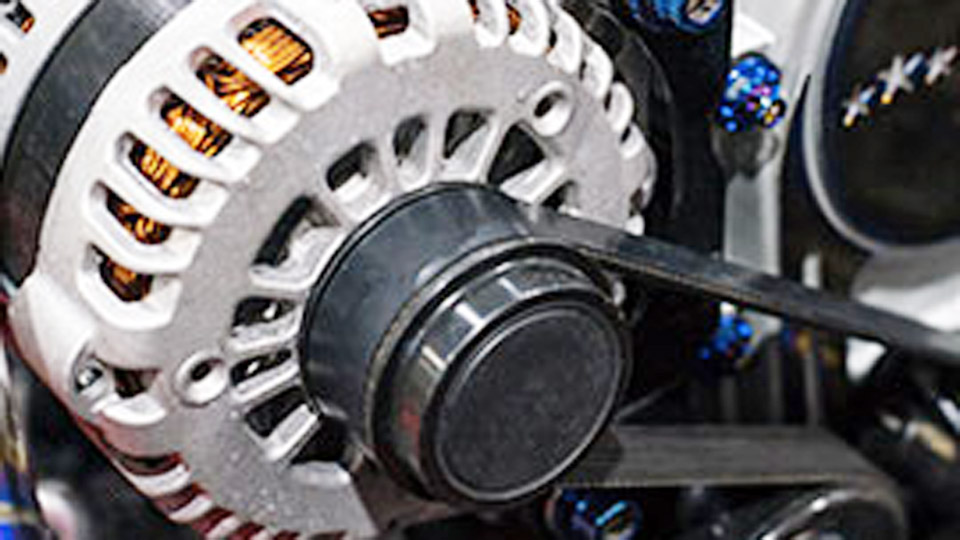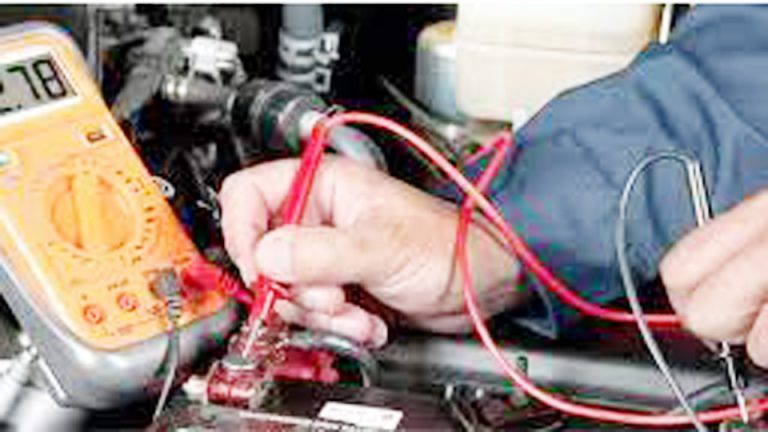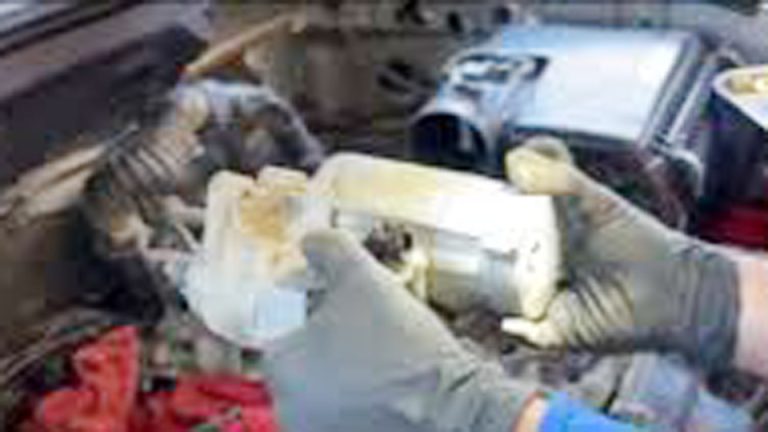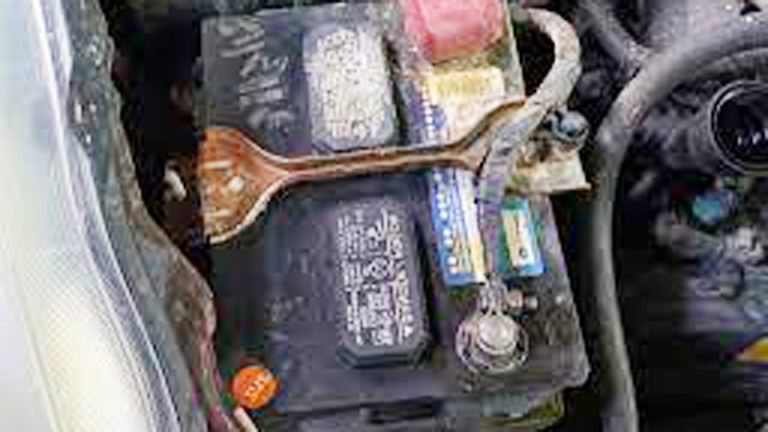I’ll never forget the moment my car’s dashboard lit up like a Christmas tree, and the battery warning light stared me down. It was a chilly morning, and I was on my way to work when my 2012 Honda Civic started acting sluggish. The headlights dimmed, the radio cut out, and I knew something was wrong.
After limping into a parking lot, I popped the hood and realized my alternator was likely the culprit. If you’re wondering, “How long does it take to get an alternator replaced?” I’ve been there, and I’m here to share my story—along with everything I learned about the process, costs, and what to expect.
Replacing an alternator isn’t just about swapping a part; it’s about understanding your car’s electrical system, choosing the right mechanic or tackling it yourself, and getting back on the road without breaking the bank.

Image by consumeraffairs
In my case, it took about two hours at a local shop, but the full experience—from diagnosing the issue to driving away—spanned a day. Let me walk you through it, step by step, so you can feel prepared if your alternator ever gives up on you.
What Does an Alternator Do, and Why Does It Matter?
Before diving into the replacement process, let’s talk about why the alternator is such a big deal. In my Civic, the alternator is like the heart of the electrical system. It charges the battery while the engine runs and powers everything from the headlights to the air conditioning. When it fails, your car might still run for a bit—thanks to the battery—but it’s only a matter of time before you’re stranded, like I almost was.
I noticed my car struggling to start a few days before the dashboard warning lights appeared. The engine cranked slowly, and the interior lights flickered. At first, I thought it was just a weak battery, but after getting it tested at an auto parts store, the battery checked out fine. That’s when I suspected the alternator.
A quick test with a multimeter confirmed it wasn’t putting out enough voltage. If you’re seeing similar symptoms—dim lights, a dead battery, or weird electrical glitches—it’s worth checking the alternator first.
Diagnosing the Problem: My First Steps
When my car started acting up, I didn’t rush to a mechanic. I’ve always been hands-on with my vehicles, so I grabbed my multimeter and did some troubleshooting in my driveway. Testing an alternator isn’t rocket science, but it does require some patience.
I started by checking the battery voltage with the engine off—it read about 12.6 volts, which is normal for a healthy battery. Then, I started the engine and checked again. A working alternator should push the voltage to around 13.5–14.5 volts. Mine barely hit 12.2 volts. That was my first clue.
I also noticed a faint whining noise from under the hood, which I later learned was the alternator’s bearings starting to fail. If you hear something similar, don’t ignore it. Another telltale sign was the battery light on my dashboard, which flickered before staying on solid. These clues told me it was time to replace the alternator, but I had to decide whether to do it myself or take it to a shop.
Deciding Between DIY and a Professional Mechanic
This was the big question: should I replace the alternator myself or pay someone else to do it? I’ve done basic car maintenance before—oil changes, brake pads, even a radiator flush—so I wasn’t intimidated by the idea of swapping an alternator.
But I also knew that time, tools, and access could make or break the experience. In the end, I chose a professional mechanic because I didn’t have a full day to dedicate to the job, and my garage wasn’t equipped for heavy lifting.
If you’re considering a DIY alternator replacement, here’s what I learned from researching and talking to friends who’ve done it. The job typically takes 1–3 hours, depending on your car’s make and model and your experience level. For my Civic, the alternator is tucked behind the engine, so it requires removing a few belts and possibly the air intake.
You’ll need basic tools like a socket set, wrenches, and maybe a pry bar. The biggest challenge is dealing with tight spaces and rusty bolts—something I wasn’t thrilled about tackling in my driveway.
Taking it to a mechanic, on the other hand, usually means a 1–2 hour job, plus some wait time for scheduling and parts. I called around to local shops and got quotes ranging from $300 to $500, including parts and labor.
That’s when I realized the cost of the alternator itself varies wildly—anywhere from $100 for a rebuilt unit to $300 for a brand-new OEM part. Labor costs depend on the shop’s hourly rate, which in my area was about $100–$150 per hour.
My Experience at the Auto Shop
I chose a local shop with good reviews and a reputation for honesty. When I dropped off my Civic, I explained the symptoms and my multimeter findings. The mechanic nodded, popped the hood, and confirmed the alternator was shot within 10 minutes.
He showed me how the serpentine belt was slipping slightly, likely due to the alternator’s failing pulley. It was reassuring to know I wasn’t just throwing money at a guess.
The actual replacement took about 1.5 hours. They had the part in stock—a remanufactured alternator with a two-year warranty—which saved me from waiting on a delivery. While I sipped coffee in the waiting area, I overheard the mechanics talking about how some cars, like certain BMWs or trucks, can take longer because of cramped engine bays or extra components in the way.
For my Civic, it was a straightforward job: remove the old alternator, install the new one, reconnect the wiring, and tension the belt properly.
The total bill came to $420—$150 for the alternator, $200 for labor, and a few bucks for shop fees and taxes. It stung a bit, but I felt good knowing the job was done right. They even tested the new alternator’s output and showed me the numbers: a steady 14.2 volts. My car felt like itself again when I drove it home—no dim lights, no sluggish starts.
Factors That Affect Alternator Replacement Time
From my experience and conversations with the mechanic, I learned that several things can influence how long it takes to replace an alternator. Here’s what stood out:
Car Make and Model: Some cars, like my Civic, have alternators that are relatively easy to access. Others, like luxury vehicles or older models, might require removing additional parts, which can add an hour or more to the job.
Mechanic’s Experience: A seasoned pro will work faster than someone new to the trade. My mechanic had done hundreds of alternator replacements, so he knew exactly what to do.
Parts Availability: If the shop has the alternator in stock, you’re looking at a same-day fix. If they need to order it, you might wait 1–2 days, especially for rare or high-end vehicles.
DIY vs. Professional: If you’re doing it yourself, expect to spend extra time gathering tools, watching tutorials, or wrestling with stuck bolts. I spoke to a friend who replaced his Toyota Camry’s alternator in about three hours, but he admitted to cursing a few times when a bolt wouldn’t budge.
To give you a clearer picture, here’s a table comparing DIY and professional replacement based on my research and experience:
| Aspect | DIY Replacement | Professional Replacement |
|---|---|---|
| Time | 1–3 hours, depending on skill | 1–2 hours, plus wait time |
| Cost | $100–$300 (part only) | $300–$600 (part + labor) |
| Tools Needed | Socket set, wrenches, pry bar | None (shop provides tools) |
| Risk | Mistakes could damage wiring or belt | Low, if you choose a reputable shop |
| Experience Level | Moderate mechanical knowledge required | No experience needed |
Common Problems I Encountered (and How to Avoid Them)
Even though I didn’t do the replacement myself, I ran into a few hiccups during the process that are worth sharing. First, I made the mistake of driving my car too long after the warning signs appeared. The battery drained completely, and I had to jump-start it to get to the shop. If I’d acted sooner, I could’ve avoided the stress of nearly getting stranded.
Another issue was picking the right alternator. When I was researching, I noticed some online forums recommended cheap aftermarket parts to save money. But my mechanic warned me that low-quality alternators often fail within a year.
He suggested sticking with OEM or high-quality remanufactured units, which is what I went with. So far, it’s been two years, and my alternator is still going strong.
Finally, communication with the shop was key. I made sure to ask about warranties, labor costs, and what tests they’d run after the replacement. One shop I called quoted me $600 without explaining why, so I passed. Always get a breakdown of costs upfront to avoid surprises.
Tips for a Smooth Alternator Replacement
Looking back, there are a few things I wish I’d known before dealing with my alternator issue. Here are my best tips, based on what worked for me:
Test Before You Replace: Don’t assume it’s the alternator just because your battery light is on. A quick multimeter test or a trip to an auto parts store for a free diagnostic can save you from unnecessary repairs.
Shop Around for Quotes: Call at least three shops to compare prices. Ask about the alternator’s brand, warranty, and labor costs. A little research saved me about $100.
Consider Your Time: If you’re handy and have the tools, DIY can be rewarding. But if you’re short on time or patience, a professional job is worth the cost.
Check the Belt: Since the alternator is connected to the serpentine belt, ask your mechanic to inspect it for wear. Replacing it at the same time can prevent future headaches.
Keep Up with Maintenance: I learned that regular maintenance, like checking battery terminals for corrosion, can extend your alternator’s life. Mine might’ve lasted longer if I’d been more diligent.
Frequently Asked Questions
What are the signs that my alternator needs replacing?
When my alternator started failing, I noticed dimming headlights, a flickering dashboard, and a slow-cranking engine. The battery warning light came on, and I heard a faint whining noise from under the hood. These are classic signs, but you should always test the alternator with a multimeter or at an auto parts store to confirm.
How much does it cost to replace an alternator?
In my case, I paid $420 for a professional replacement, including parts and labor. Costs can range from $300 to $600, depending on your car and where you go. DIY is cheaper—around $100–$300 for the part—but you’ll need tools and time.
Can I drive with a bad alternator?
I made the mistake of driving a bit too long with a failing alternator, and it nearly left me stranded. Your car might run on battery power for a short time, but it’ll eventually die. Get it checked as soon as you see warning signs.
How long does an alternator last?
My mechanic told me a good alternator can last 7–10 years or 80,000–150,000 miles. Mine gave out around the 100,000-mile mark, which is typical for a Honda Civic. Regular maintenance can help it last longer.
Is it worth doing the alternator replacement myself?
I considered doing it myself but decided against it because I lacked the time and a proper workspace. If you’re comfortable with basic tools and have a few hours, DIY can save you money. Just watch out for tight spaces and make sure you get a quality part.




